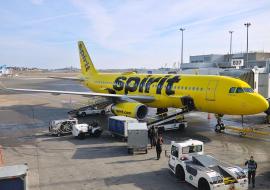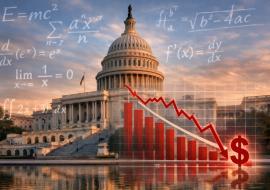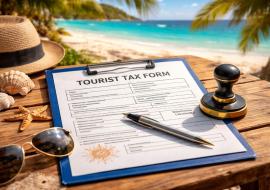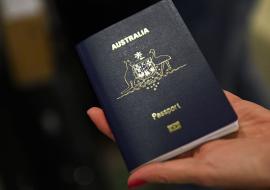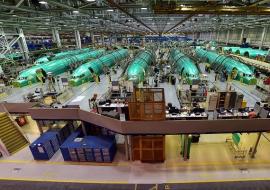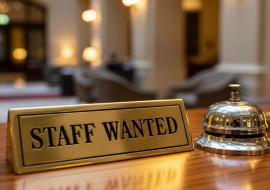Can Trump Reverse Obama’s Cuba Policy? It Won’t Be Easy
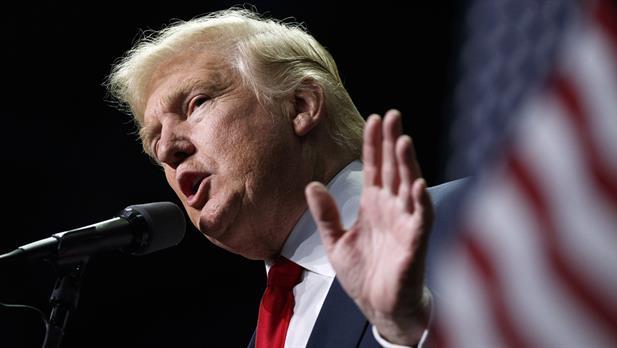
President Obama has said he worked to make the re-establishment of diplomatic ties between the United States and Cuba “irreversible,” but the policies he has put in place to thaw the more than 50-year standoff between the two countries could be easily undone by the incoming administration, experts say.
Everything Obama did to open Cuba could be revoked because it was all done through executive action and regulatory changes, the latter of which were more formal but can be reversed.
“Obama’s regulatory changes could be reversed fairly quickly. Trump could order it on day one but it would take the Treasury Department a few weeks to rewrite the regulations,” William LeoGrande, professor of government at American University and co-author of "Back Channel to Cuba," told ABC News.
During the campaign, Trump said he planned to roll back Obama’s executive actions, which include lifting restrictions on cigars and rum imports.
"But all of the concessions that Barack Obama has granted the Castro regime were done through executive order, which means the next president can reverse them and that I will do unless the Castro regime meets our demands,” Trump said at a campaign rally in Miami on Sept. 16. “Not my demands, our demands. You know what the demands are. Those demands will include religious and political freedom for the Cuban people and the freeing of political prisoners."
Can Cuba Be Closed Again?
Because everything Obama did to open Cuba was done through executive action and regulatory changes, it could be reversed if Trump wanted to.
Regulatory changes include changes to policies within the Departments of Transportation, Treasury and Commerce. Direct commercial flights between the two countries were worked out by the Department of Transportation. Meanwhile, the Department of Treasury has eased the restrictions on travel to Cuba, allowing a "people-to-people" exchange for educational purposes.
To reverse those would require regulatory changes, which are more tedious to undo, but could be rescinded.
However, given the amount of businesses working within the new framework to open up flights and offer services, others are not as sure it will be an easy reversal.
"The regulations have been properly promulgated by OFAC, a federal agency under the Treasury Department, and by the Department of Commerce. They were not implemented simply by White House fiat," Scott Gilbert, a legal and Cuba relations expert said.
"They cannot be erased easily," Gilbert added. "In addition, many U.S. businesses have invested millions of dollars in Cuba-related ventures, resulting in many contracts and other commitments that are entirely legal under existing U.S. law and regulations. These businesses rely upon and are entitled to due process."
People line up outside the United States embassy in Havana, Cuba, the day after Republican presidential candidate Donald Trump defeated Democrat Hillary Clinton in the U.S. general election, Nov. 9, 2016.
How Will This Affect American Businesses?
The majority of Americans supported the opening of Cuba; according to a Pew report in July 2015, nearly three-quarters (73 percent) of Americans said they would approve of the U.S. re-establishing diplomatic relations with Cuba and 72 percent would favor ending the trade embargo.
And that re-opening of trade may be the hardest thing for Trump to overcome if he decided to close Cuba again. There are now 90 daily round-trip flights between Cuba and the U.S., and starting Nov. 28, 20 additional daily direct flights to Havana begin. And tourism in Cuba is still growing; there was a nearly 12 percent increase in the number of visitors in the first half of 2016 when compared to the same time last year, with Americans the third-largest group visiting the island, according to the latest statistics. This data was released prior to direct commercial flights starting and an update to this figure is expected in January.
“He came into power on the mandate of fixing broken Washington that’s led by an establishment that seems to not cater enough to the economic interests of the American people,” James A. Williams, president Of Engage Cuba, told ABC News.
“We can’t imagine a scenario where closing down a market for U.S. products, hurting U.S. jobs and limiting Americans freedom to travel would fit that," Williams added. Trump "came in on a mandate of shaking up failed ideas in Washington and nothing personifies a failed idea more than the Cuban embargo for the last 55 years.”
One of the biggest groups advocating for and benefiting from the opening of Cuba -- agriculture.
Louisiana, which is the number one exporting state to Cuba, sent a diplomatic trade mission to Cuba earlier this fall, bringing along 50 government and business officials to discuss trade.
Mike Strain, Louisiana’s commissioner of agriculture and forestry, told the Business Report, “the amount of food they’re going to need is going to grow, as well as to feed the Cuban people. And we are perfectly situated to capture a great deal of that business.”
Cuba imports between 60 to 70 percent of its food.
Williams noted that a major constituent behind Trump's election were "rural, ex-urban white voters."
"People who are really pushing Cuban policy the most is the American farmer, agriculture,” Williams said. “The heart of Trump's support came from the agriculture community and they continue to be lock-step behind this."
It's unlikely, Williams added, that one of Trump's first moves in office would be to "slap them in the face by taking away new markets.”
Source: ABC News








